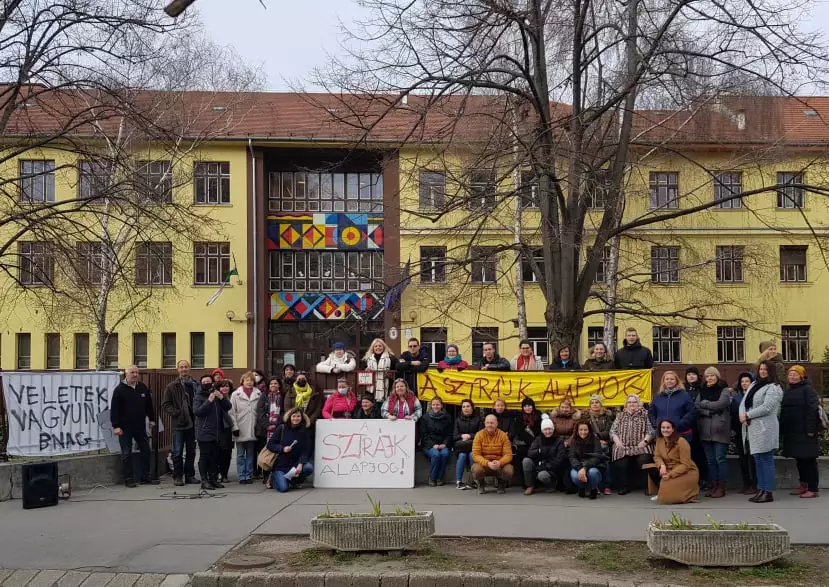Young teachers’ net wage is 467 EUR/month in Hungary – many went on strike

Teachers in Hungary receive one of the lowest salaries in the European Union. Therefore, fewer people choose this profession. Thus, schools struggle with significant labour shortages everywhere in the country and raise the work burden of their employees. The result is a vicious circle the teachers would like to break. Opposition backs their strike, while the government says they went on strike for political reasons.
Net wage for teachers ridiculous
In the past 12 years, the government has “humiliated teachers and pushed them to the brink of a subsistence crisis,” opposition politicians said on Wednesday. Gergely Arató, deputy parliamentary leader of the Democratic Coalition, told an online press conference that teachers had been stripped of wage increases, security of livelehood and autonomy. Referring to recently amended legislation on the basic services provided during strikes, Arató said their right to strike was also at risk.
Should the opposition come to power, they will raise wages by 50 percent in the sector, he said.
Teachers will be free to choose the text books they want to use, and the opposition will “restore education institutions to local communities rather than maintaining useless centralisation and bureaucracy.”
LMP co-leader Máté Kanász-Nagy said Romanian teachers earned over 50,000 forints (EUR 134) more than Hungarian counterparts, as the Hungarian government had not raised the basic wage of teachers since 2014.
A young teacher’s net wage is around the minimum wage for skilled workers, 173,000 forints,
he said.
The government says the teachers’ strike is politically motivated
Hungary’s government agrees with the demands of teachers, but 87 percent of teachers agree that now is not the time for them to go on strike, the prime minister’s chief of staff has said. Speaking to public media about an indefinite strike launched by teachers on Wednesday, Gergely Gulyás thanked teachers for the fact that
less than 15,000 of those working in public schools had participated in the work stoppage.
Gulyás said this number was significantly less than the number of teachers who had taken part in a strike in January which was later declared unlawful. Counting kindergarten and vocational school teachers, it can be said that overall less than 10 percent of teachers took part in the strike, Gulyás said. He said teachers had legitimate demands, adding that meeting them would be among the most important tasks of the next government term.
Brussels is currently discussing the next seven-year budget, Gulyás said, adding that the promised 30 percent wage increase was likely to be implemented. Hungary has asked Brussels for hundreds of billions of forints to help fund the pay hikes, he said.
Gulyás said
he hoped an agreement on the funding would soon be reached so that teachers could see their wages rise over the next government term.
He thanked teachers for conceding that a strike was not the most suitable form of protest when there is a war going on in Hungary’s neighbouring country and schools also have to take care of refugee children. He noted that schools had already endured a difficult last two years because of the pandemic.
Source: MTI






Then stop handing out election bribes and there’s your money for teachers’ well deserved pay rises.